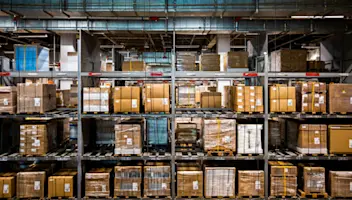How to Effectively Manage Product Lifecycle within Your ERP
How to Effectively Manage Product Lifecycle within Your ERP
How to Effectively Manage Product Lifecycle within Your ERP
12 Nov 2020
Ken Weygand
Product lifecycle management within the consumer goods industry is how you organize and track a product's entire lifecycle, from ideation to shipping and everything in between.
Think about the stages that it takes to get a product to market. There is paperwork and schematics, labor and occasionally third-party logistics providers (3PLs). There is shipping and overseas production, scheduling, and inventory. They're individual pieces of a larger puzzle that work independently and still interconnect. Each stage depends on the other to ensure that the product makes it into a customer's hands.
Without the right technology in place, you could waste time, resources and money. You need an effective solution to support open and quick communication and track the product as it moves through this lifecycle.
Ensure You Have the Right Technology to Manage Product Lifecycle
An industry-specific enterprise resource planning (ERP) solution easily stores all the data you need to effectively manage product lifecycles. A distribution ERP solution with integrated product lifecycle management (PLM) tools enables increased productivity, greater visibility and better organization in managing your various products. These tools ensure the data across your organization is in a single, digital and accessible location available in near real-time for anyone who needs to see it.
When the factory is ready to produce samples, for example, you don't want to search through emails or shared drives or folders for the specs you need to provide. You want to be able to answer any questions that management is asking at a moment's notice when you're being asked about the status of new products in development for the launch.
Robust and integrated PLM capabilities enable you to define and manage the unique steps you and your team need to create an effective process. Each step should be broken down into a task or series of tasks, which are then assigned completion dates. These tasks and timelines are tracked within the system. The system automatically sends out alerts whenever a task has a setback or is completed, so anyone involved in the process knows the next steps. Your business becomes more efficient and more productive by streamlining the product creation process.
You're able to quickly and easily cross over from tracking your product's development to monitoring your product's sales with a PLM integrated into your distribution ERP. Your ERP becomes a repository—all the documents, communications, specs, costs and purchase orders attached to a product are stored and saved in one place. They're easy to access and easy to reference, and you no longer must move product specs and designs from system to system manually.
Beyond maintaining all that data, a distribution ERP with built-in PLM tools can efficiently facilitate all those communications and processes. If someone is supposed to approve a design, for example, the solution enables users to send alerts and emails to stay on the right timeline and define that timeline within the system.
Here are the benefits that a distribution ERP with integrated product lifecycle management can offer.
Tracking product history from start to finish.
Near real-time visibility as to where the product is in its lifecycle.
Streamlined communications between all parties regarding who is completing which task and when.
Alerts if there's been a problem or setback.
Notifications once the problem or setback has been rectified.
Because all people relevant to the project are in communication, a distribution ERP with integrated PLM is imperative because the efficiency gains save you time and money.
How an Industry-Specific ERP Effectively Manages Product Lifecycles
You want to use a solution that's made to overcome the challenges of your industry as well as fit the unique processes and productions you face, particularly as it relates to managing product lifecycles. There's a lot that goes on between ideation to production to distribution. It would help if you used a distribution ERP that can support you every step of the way.
Our purpose-built distribution ERP, Aptean Distribution ERP, takes the complex process of creating a product and gives you the tools to coordinate multiple teams' work to ensure that each task is done on time and—most importantly—well. Aptean’s solution is highly customizable and made to truly accommodate your business needs and support workflow processes from concept to finished product.
If you'd like to talk more about how Aptean’s Distribution ERP can help you effectively manage your products' lifecycles, reach out to our team of distribution industry experts. We'd love to talk.
Related Content


Ready to start transforming your business?
We’ve got the specialized ERP solutions you need to conquer your industry challenges.






